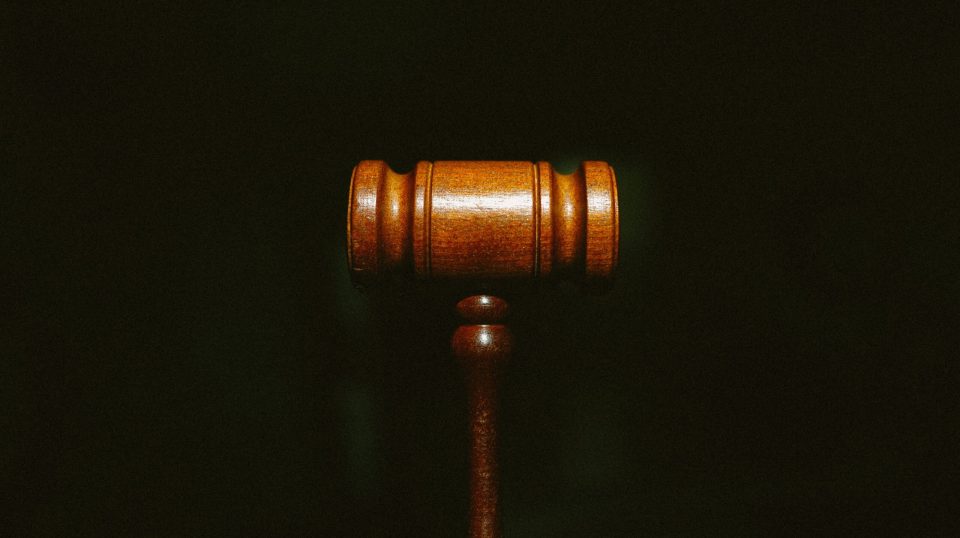
The Sullivan decision: A misinformation catastrophe
Find out why you shouldn’t believe everything you read on the internet

In May 2022, the Supreme Court of Canada issued their decision on R. v. Sullivan. As inflammatory headlines hit the newsreels, the court was met with an uproar of backlash from women’s rights groups and feminist advocates.
Anger, fear and resentment proliferated as misinformation on the decision spread like wildfire across all social media outlets.
So, what was the Sullivan decision?
R. v. Sullivan refers to two separate cases, R. v. Sullivan and R. v. Chan. They both required the court to decide whether voluntary intoxication could be used as a defence for criminal acts in Canadian courts.

In R. v. Sullivan and R. v. Chan, both individuals killed or injured family members while under the influence of drugs.
Sullivan and Chan sought to assert a defence called non-mental disorder automatism by reason of extreme self-induced intoxication; this defence is available to an individual who experiences a temporary period of uncontrollable action or psychosis unrelated to a pre-existing mental disorder. If successful, it results in an acquittal.
In seeking to do so, they challenged a provision in the Canadian Criminal Code that limited the use of the defence for individuals accused of certain offences involving assault or other violations of bodily integrity, including sexual assault.
In particular, they referred to the two key elements of a crime, the actus reus (guilty act) and the mens rea (guilty mind). Sullivan and Chan asserted their moral innocence on the grounds that a state of non-mental disorder automatism precludes mens rea, meaning they were unable to form the necessary intent to commit the crime.
The Sullivan decision decided that limited the use of the defence was unconstitutional and should be struck down. This would allow Sullivan and Chan to raise the defence at trial.
Why was everyone up in arms?
The validity of voluntary intoxication as a defence has been tossed back and forth across the Canadian judiciary and legislative branches for some time.
On one side lies the need to uphold the sacred principles of criminal law and the Canadian judiciary at large. On the other lies the concerns of women’s rights groups and feminist advocates who have been on the front lines of this debate for many years.
They argue that to strike down the limitation as unconstitutional would be to put the rights of women and children, as disproportionately affected victims of intoxicated violence, at great risk.
Sheehy and Grant of Policy Options believe that to allow an individual to raise the defence in a case of sexual assault is to send the message that abusers of intoxicating substances are not responsible for their actions. They fear the spread of a culture of impunity and the gradual degradation of women’s confidence in the criminal justice system.

Notably, neither R. v. Sullivan nor R. v. Chan involved sexual assault. However, you wouldn’t know that, given the wildly inflammatory and emotive headlines that exploded in the aftermath of the decision such as “In Canada, extreme intoxication is now a defence for heinous crimes like murder, rape.”
Considering headlines like this, one thing must be made explicitly clear: An individual who has voluntarily over-consumed an intoxicating substance is not automatically voided of their criminal liability. Drunkenness is not a defence for sexual assault or rape in Canada.
The non-mental disorder automatism defence carries extremely specific criteria. A state of automatism is exceedingly difficult to prove, and the successful use of the defence is rare.
Here are some articles that clarify what the Sullivan decision means:
“The legal defence of extreme intoxication is not inherently anti-feminist”
Disarming misinformation
While the dangers of fake news and misinformation in the digital age are not new, the outcry in the aftermath of the Sullivan decision highlights the importance of becoming educated and informed on how to actively disarm misinformation.
Question everything
It was concerning to watch such a complex legal issue be reduced to a single inflammatory sentence that relied entirely upon narrow perceptions of gendered vulnerability and victimization.
When consuming news and other content on social media, it’s important not to take everything you read on the internet at face value. Individuals who curate this content, whether knowingly or by way of ignorance, spread misinformation and intentionally employ buzz words and emotive phrasing to attract digital interactions and attention.
In certain cases, someone may be more concerned with going viral than sharing the truth.

Do your own research
I recall the alarm I felt when I came across the initial headlines. I felt the same anger, fear and resentment that I imagine fuelled a great deal of the online discourse.
It’s of utmost importance to conduct your own research and educate yourself, especially on contentious issues, using diverse sources for information and viewpoints.
Forbes: 5 Ways To Identify Reliable Sources
Think critically before you post/re-post
I understand the initial sentiment felt in response to the inflammatory headlines and even to an extensive legal analysis of the Sullivan ruling. It’s easy to lead with our emotions, especially when traversing digital forums where posts and re-posts are achieved in a couple of taps on one’s phone screen.
I want to encourage readers to think critically before posting or re-posting content. While this can’t always require a weeks-long deep dive into the nitty gritty of every subject you come across, it’s important to ensure you understand the information you are sharing.
Toronto Public Library: How to Spot Fake News
Talk about it
Take the discussion offline. Those around you may have knowledge, insights and opinions that actively inform and educate.
I recall discussing the Sullivan decision with several close friends and peers who were justifiably concerned with the inflammatory content circulating on social media platforms. I believe our discussions led to greater understanding and did minimize many of their immediate concerns.




